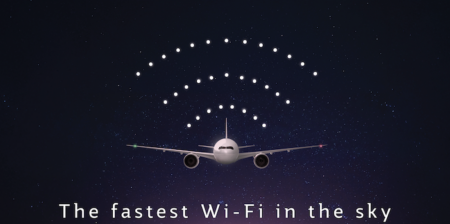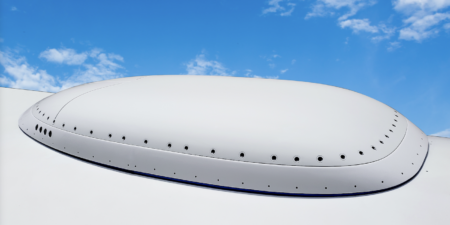Above: Media trials of 2Ku took place onboard Gogo’s B737 flying test lab. Sadly, no one from Aircraft Interiors International was able to attend the event on the date of the test flight
November 18, 2015 – According to Gogo, the company has reached a milestone in the development of its 2Ku next-generation satellite technology, following the first official media trials of the system. The aviation broadband connectivity and wireless entertainment specialist allowed reporters to trial the system during a series of flights on its Boeing 737 flying test lab, nicknamed the Jimmy Ray after the company’s founder. You can see a video of the system being installed HERE.
“This is a tremendous milestone for Gogo. In about a year and a half, we’ve been able to fully develop and bring this new technology to market, a speed which is unprecedented in this industry. The accomplishment really highlights Gogo’s leadership in this space and the tremendously talented employees we have within our ranks,” said Gogo’s president and CEO, Michael Small. “Gogo created the in-flight connectivity market in the US through its technological innovations, and we expect 2Ku to be the technology that kick-starts this industry for global aviation.”
Gogo claims the system is capable of matching or exceeding the bandwidth of any other system currently offered on the market. The technology also benefits from the global coverage and redundancy of the more than 180 satellites in the Ku-band. In addition, the proprietary antenna design is claimed to give 2Ku a cost advantage over other global solutions.
Above: The proprietary 2Ku antenna being installed on the Jimmy Ray Boeing 737-800
As part of the flight testing of 2Ku, Gogo simultaneously streamed videos on more than 40 devices while providing web browsing on additional devices (as you can see in this video HERE).
“Gogo has a big advantage in that we aren’t tied to any one particular technology. We looked at every available alternative on the market and found significant shortfalls with all of them,” added Small. “So what did we do? We designed 2Ku to deliver peak performance in terms of coverage, cost, capacity and reliability without any of these shortfalls.”
Gogo expects 2Ku to launch commercially in the coming months, and has so far secured deals with eight airlines representing more than 550 aircraft to adopt the technology for fleet deployment or a trial of the service.




